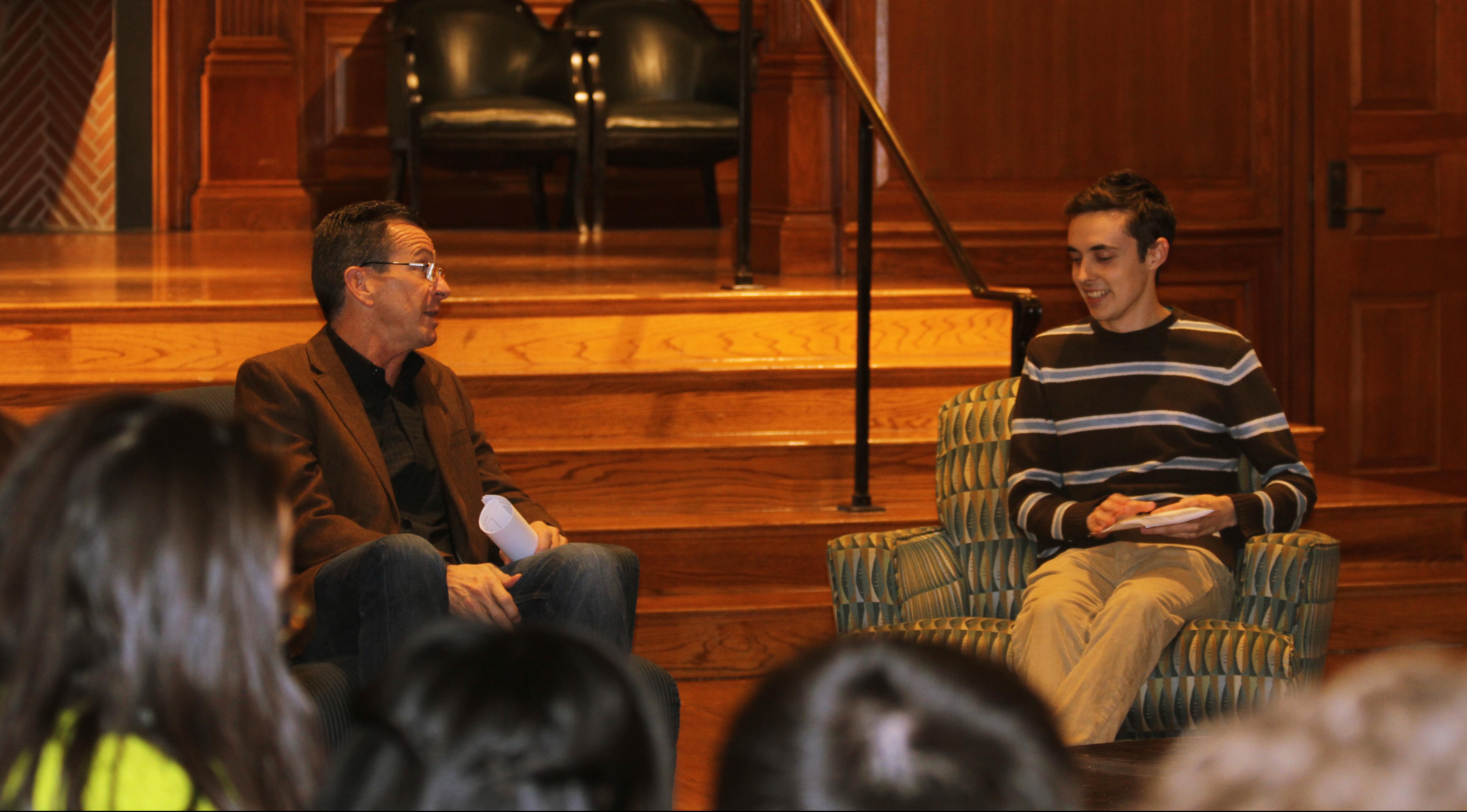
Dressed in jeans and cowboy boots, Gov. Dannel Malloy settled into an armchair in the Branford Common Room Monday evening to forecast gubernatorial races for the next three years.
Malloy, a former attorney and Stamford mayor, is currently serving his second term as governor of Connecticut after narrowly defeating Republican opponent Tom Foley in 2014. Hosted by the Yale College Democrats, Malloy spoke to an audience of around 50 Yale students about his 2010 and 2014 election experiences. He also highlighted progressive legislation implemented over the course of his time in office, such as reforms on criminal justice and gun control.
“Historically, Connecticut’s been kind in governor’s runs to what were then perceived as liberal Republicans, and I’m not a liberal Republican. Quite frankly, I’m a fairly liberal Democrat,” Malloy said. “I embraced it. I wanted to win on my terms.”
Of his two successful runs for governor — Malloy also ran in 2006, when former New Haven mayor John DeStefano defeated him in the Democratic primary — Malloy said he was more uncertain about winning the 2010 election than the 2014 one.
Dems president and staff columnist for the News Tyler Blackmon ’16 said he was surprised by Malloy’s confidence in last year’s election — Malloy defeated Foley by 2.5 percentage points that year. The Dems, who had canvassed for Malloy leading up last year’s election, “were all sweating bullets” on Election Day, Blackmon said.
Malloy also touched on the decision to support Syrian refugees in the state. Last month, Malloy welcomed the first Syrian refugee family to be turned away from another state. The family moved to New Haven after Indiana Gov. Mike Pence suspended the resettlement of Syrian refugees in his state. Malloy also discussed a number of Republican governors who have publicly announced their intention to deny Syrian refugees from their states after recent terrorist attacks in Paris. He stressed that the refugees pose no harm to the United States, given the extensive screening process they must pass before reaching American soil.
“We don’t let terrorists win by changing our behaviors,” he said.
Talk attendee Nick Girard ’19, a Connecticut resident who worked on Malloy’s 2014 campaign, said he found the governor’s adherence to his progressive values heartening — especially his stance on gun control following the 2012 Sandy Hook shooting.
Malloy argued that the state’s requirement of a firearm permit or certification to purchase ammunition makes Connecticut’s gun laws more restrictive than many blue states, including California.
Another key issue Malloy has tackled in office is an overhaul of the state’s criminal justice system, he said. Malloy cited his Second Chance Society Initiative, which he unveiled last February at the Yale Law School. The initiative aims to lower the state’s prison population, focusing on helping nonviolent offenders and cutting recidivism rates. Malloy said that even in the 1980s, during his work as a federal prosecutor, he became aware of the emphasis law enforcement places on punishing individuals from minority communities.
Malloy said Yale had done little to help these communities by neglecting New Haven and its residents in the 1960s and ’70s before former University President Richard Levin re-established ties with the city. Malloy also stressed that the University and the Yale-New Haven Hospital system in contributing to both research funding and employment rates in the Elm City, which strengthens the city.
Malloy will visit New Haven’s Planned Parenthood clinic on Whitney Avenue Tuesday.







